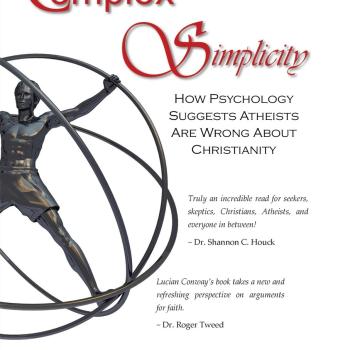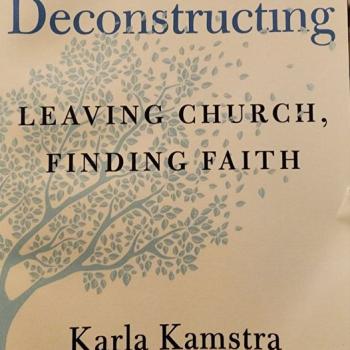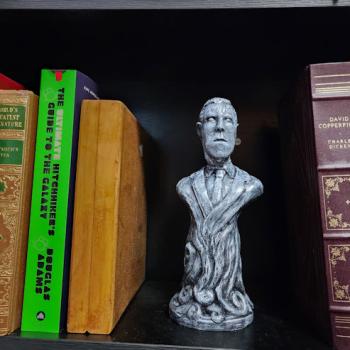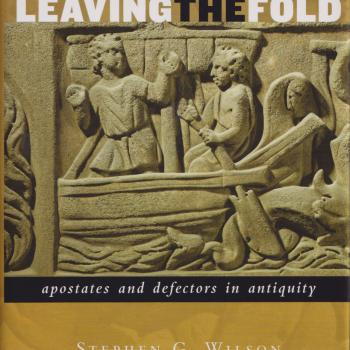“Tinkering”
In his 2018 study on internet and religion, researcher Paul McClure coined the word “tinkering” to refer to the mental juggling one does in order to deal with new ideas one comes across which do not neatly cohere to previously held ideas.
Outside McClure’s work, social psychology has generally held that individuals who encounter concepts which contradict the ideas they already hold will enter a state known as dissonance. Dissonance is uncomfortable, and the general route to escape the discomfort is to accept one of the ideas and discard the other – a binary concept which is consistent with conversion and deconversion.
However, McClure introduces a much more nuanced approach. Under “tinkering,” one works to coordinate the different ideas and emerge with a new way of understanding things which borrows from both idea systems.
“Tinkering” felt like an especially appropriate word to McClure given that it’s a word usually associated with technology, and his study was directly related to how internet usage affects a person’s attitude and adherence to religion. McClure concludes that the effects internet usage has on religious affiliation have gone almost unnoticed.
McClure points out that, according to the background literature, religious affiliation has dropped much more rapidly since the introduction of internet usage in the 1990s, and that internet usage may account for as much as 20% of religious decline. In fact, the explosion of people ticking the “none” box on religious surveys began around the same time the internet exploded.
Checking this against my personal research, it is apparent in retrospect that there are portions within each deconversion story where the person in question takes to the internet as they investigate, voice, or explore their doubts – frequently before or in place of talking to someone directly about their problems.
Education Versus the Internet
In some ways, this supports the standard talking point of the “New Atheists” in the 2000s and 2010s which said that education was the religion defeater.
In fact, research to that effect emerged around the same time as McClure’s publication which showed that college students, when exposed to a variety of people with their own worldviews and belief systems, found the exclusionary Christian belief system to be less attractive. Under Orthodox Christianity, a person is either in or they are out, and when the Christian meets, interacts with, and begins to appreciate the non-Christian, the idea of excluding them becomes unattractive.
However, such is not necessarily the case with the internet. For one thing, it is much less likely to form personal bonds with others in a digital space. Quite the opposite, in fact. Research suggests that, when given a choice of ways to interact online, people tend to select for less intimacy rather than more intimacy. “Teenagers would rather text than talk.”
Internet gives people access to just about all human knowledge, but should not be directly confused with “education.” When a person is informed by way of online activity, there is a self-selection to the process which does not exist in the classroom. Students have less freedom to pick and choose what to learn, but an internet user can choose which videos to watch, articles to read, and online personalities to engage.
In fact, algorithmically, the internet has shown itself to be a reinforcer of current beliefs rather than a driver of belief change.
But this seems to be contradicted by McClure’s research.
If algorithms, autonomy, a lack of intimacy, and social isolation are the qualities most associated with internet, how does this drive people away from religion? This can’t be the same mechanism seen in the academy, wherein people of diverse backgrounds meet, spend time together, begin to like one another, and are no longer comfortable with a belief system that excludes others.
The Internet: a Community Defeater
The answer to this question may be the very fact that the internet does socially isolate people and destroy community. Community, as it happens, has been long recognized as the driving force behind religious conversion and religious belonging. Isolate a person from the religious community, and the sense of belonging, loyalty, fidelity, and social identity gradually erodes away.
In agreement with this sentiment, McClure demonstrates that digital devices and activities have begun to take the place of the community activities associated with religion.
McClure’s research was published two years prior to the lockdown of 2020 when church activities were transferred almost entirely to a digital space, wherein they currently remain. A person may now attend church in-person, but they can also continue to “attend” from their tablet as churches still stream their services.
The great strength which has kept churches vital for many millennia now is the sense of personal acceptance, belonging, and intimacy with like-minded individuals as they share in rituals and traditions. Unknowingly, churches have facilitated their own downfall by cultivating the very isolation which they have traditionally fought against.
The Internet and Performative Identity
McClure argues that the days of internet usage wherein the individual is a faceless entity who may assume any identity he or she chooses in a given chatroom are gone. In the new internet age, “Web 2.0” as he calls it, the individual must juggle a carefully cultivated online persona – becoming a performer who must stay “in-character” across his or her multiple channels of content and expression. While the internet is fostering social isolation, it is simultaneously turning each person into an actor with a faceless audience before whom they must be both inauthentic for the sake of performance, and authentic for the sake of consistency.
Very few people rise to the level of “online influencers,” but everyone behaves as an aspiring “influencer.”
The Personalization of Religion
McClure notes that, preceding the rise of the internet, religious affiliation in general was already on the decline as the formal and longstanding religious denominations and traditions had begun breaking apart and dissipating to be replaced with non-denominational alternatives. People had already begun choosing individualism and freedom to pick and choose over formal affiliation. The advent of the internet at the rise of non-denominationalism formed the perfect intersection to turn each individual into his or her own religious institution without ties to a tradition or like-minded community. “I do not belong to a religious tradition, I am my own religious tradition.”
In classic models of religious conversion, the conversion is said to occur after some life-change causes the person to enter a “problem solving mode” wherein he or she is seeking to resolve the crisis. The person starts with their existing beliefs and worldviews, and when those fail to produce a solution, they become open to outside views as a solution.
McClure suggests a similar mechanism is behind internet use and religious exit. The person is bombarded with novel ideas and views which do not fit into the religious paradigm. Further, the person himself is simultaneously presenting on multiple feeds and fronts, one in which he is a culinary enthusiast, the next in which he is a media commentator, a third in which he plays video games for an audience, and perhaps one in which he talks about his religion. This complexity cultivates a kind of identity crisis, wherein the person must somehow unify or clarify this barrage of information and identity. Pluralism, not exclusivism, becomes the attractive solution, and religion cannot bear the weight of pluralism.
Study Results
After thus surveying the existing literature and studies, McClure began his own statistical research to test the following hypotheses:
- H1: Internet use decreases the likelihood of being religiously affiliated.
- H2: Internet use decreases the likelihood of participating in religious activities.
- H3a: Internet use decreases the likelihood of being religiously exclusive.
- H3b: Internet use increases the likelihood of being religiously exclusive.
It is worth noting that H3a and H3b contradict one another. Since some research suggests that algorithms and self-selection was likely to place one in a “cocoon” or echo chamber in which one only receives reinforcement for the views one already holds, it is entirely possible that internet usage would increase exclusivity. However, because of the increase in personal independence of identity and isolation from other believers, it is also likely that a person would be less exclusive of others.
What McClure found is this:
Internet usage is linked to religious disaffiliation and discourages exclusivity. Or as McClure sums it up, “…the Internet impacts religious belonging and a particular type of religious belief but not religious behavior.”
What McClure means by this is that people may continue to participate in religious services and superficially interact with other religious people, but the sense of belonging has evaporated, and it becomes just another persona the person adopts in a world wherein the person dons and discards personas from moment to moment as they move across digital spaces.
This conclusion was somewhat anticipated 50 years before by the work of psychologist James Fowler who suggested something like McClure’s “tinkering” model as individuals explore and change their faith and beliefs from childhood to adulthood and the work-a-day world wherein they have to be parents and employees and parishioners and more. Eventually the monolith of religion and the way it insists itself on every aspect of the believer’s life is unsustainable in a world where it is less and less applicable to the domains of life.
Or put differently: as one multiplies one’s affiliations, one weakens one’s religious belonging.















